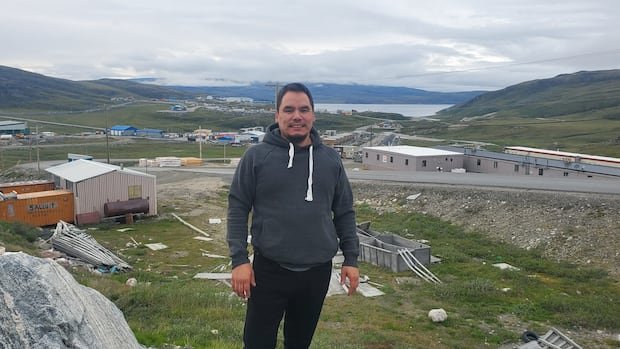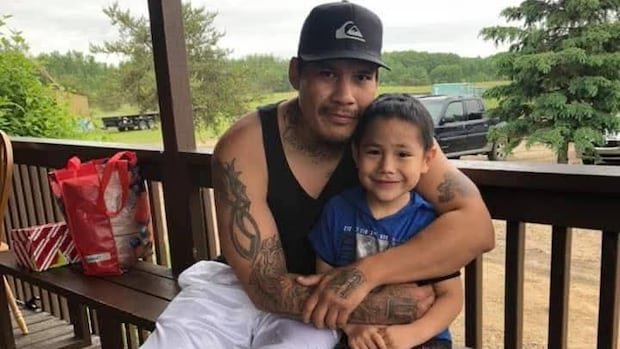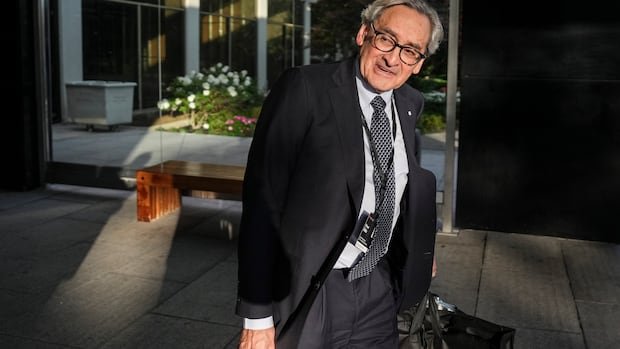British Columbia Premier David Eby met with members of numerous First Nations on British Columbia’s north coast on Wednesday to support and sign a statement calling on Ottawa to continue a moratorium on oil tankers in the province’s northern waters.
The North Coast Protection Declaration is British Columbia’s latest defense urging the federal government to protect the environment and First Nations autonomy, as Alberta Premier Danielle Smith pushes for a new private sector pipeline that would ship crude oil to British Columbia’s north coast for export to Asia.
The statement said any crude oil spill in the area would destroy billions of dollars in economic activity along the coast and result in “generations of lost livelihoods and irreversible ecological damage.”
Lifting the ban “doesn’t make any sense,“Eby said.
Locals have long emphasized the need to protect the ecological area.
“It remains one of the richest and most productive ecoregions on the planet,” said Marilyn Slett, president of the Coastal First Nations and elected chief councilor of the Heiltsuk First Nation.
“We want to continue living our way of life connected to a healthy and intact ocean.”
Eby, Slett and a group of other coastal First Nations leaders co-signed the statement at the 10th BC First Nations Cabinet and Leaders Meeting in Vancouver.
‘Support thousands of livelihoods’
The nine-paragraph statement outlines how the environment and economic drivers of the North Shore are linked.
“For generations, communities have built and sustained the North Coast economy, a legacy that continues today through a multi-billion dollar sustainable conservation economy that supports thousands of livelihoods in fishing, tourism, renewable energy and sustainable management.” read the statement.
There has been an opt-out zone over the coastal zone since 1985, and in 2019, the federal government put its Oil tanker moratorium lawwhich prohibits oil tankers from transporting more than 12,500 metric tons of crude oil or persistent oil for transportation, loading or unloading in certain areas of northern British Columbia waters.
Concern that that long-standing protection could be threatened arose this summer when Ottawa introduced its Building Canada Act, which allows the government to fast-track major projects it deems to be in the national interest, even circumventing existing laws.
Smith has been calling for the tanker ban to be repealed as part of the Alberta government’s proposal to build an oil pipeline to the British Columbia coast.
Prime Minister Mark Carney has said the Build Canada Act is a viable and critical way to combat the economic threat of U.S. President Donald Trump’s tariffs on the Canadian economy.
The federal government has said that Indigenous peoples will be consulted during the process of choosing fast-track projects, and that a review process for chosen projects will include further consultation with nations potentially affected by them.
“We are opening gaps in politics,” says the prime minister
Eby on Wednesday highlighted the importance of continuing to protect British Columbia’s waters.
“We cannot allow the small minority of voices that are driving divisive politics in Alberta to drive the national conversation about what is a uniquely Canadian economy,” Eby said.
“This statement is not a reaction to Alberta, it is a reaffirmation of a consensus that has existed for 50 years along with the North Coast.”
A group of pro-resource development First Nations chiefs are voicing their support for a new oil pipeline to the west coast. National Chiefs Coalition founder and president Dale Swampy said involvement in the oil and gas sector, including ownership opportunities, can be a way to drive economic reconciliation.
Some First Nations have expressed support for a new oil pipeline to the British Columbia coast, saying it could boost economic reconciliation.
In signing the statement, Eby emphasized that there is no real plan for a pipeline.
“I will point out what is obvious to me and hasn’t fully sunk in for some people is that there is no pipeline project through the north, there is no route, there are no proponents, there is no funding,” he said.
A statement from the Alberta premier’s office says Danielle Smith’s office has heard Eby’s concerns and agrees there needs to be a credible proponent and broad First Nations participation and asks for patience “as we work through the process.”
“However, the federal government has control over interprovincial trade. We hope the federal government will support this project that will unlock the most valuable economic asset of 5 million Albertans,” the statement said.









